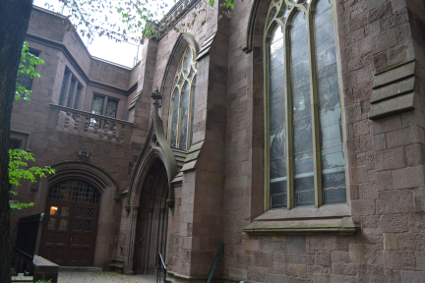Grace Church jumps gun on Episcopal gay marriage OK

Same-gender couples soon can have their lifelong relationships blessed using a rite that the Episcopal Church’s General Convention approved for use starting later this year. However, at least one Brooklyn Episcopal parish asserts that it has already begun using this rite.
The Episcopal News Service reports that the House of Deputies concurred with the House of Bishops to pass Resolution A049, which authorizes provisional use of the rite “The Witnessing and Blessing of a Lifelong Covenant,” when leaders and representatives met in Indianapolis earlier this month for the denomination’s triennial General Convention.
The use of the rite takes effect on the First Sunday of Advent (start of a new liturgical year), which falls on Dec. 2 this year. Clergy will need the permission of their diocesan bishop under the terms of the resolution.